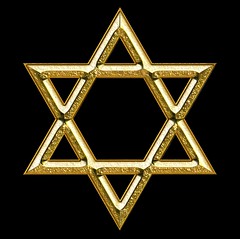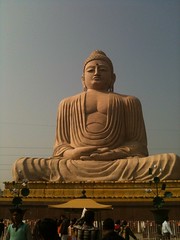AP World History Unit 1 & 2 Flashcards
Terms : Hide Images [1]
| 10722892215 | Culture | One of the 5 AP World themes that deals with: Religions, belief systems, philosophies and ideologies, science/maths/technology, and art and architecture | 0 | |
| 10722892216 | Economic | One of the 5 AP World themes that deals with: agriculture and pastoral production, trade and commerce, labor systems, industrialization, capitalism, and socialism | 1 | |
| 10722892217 | Social | One of the 5 AP World themes that deals with: Gender roles and relations, family and kinship, racial and ethnic constructions, social and economic classes | 2 | |
| 10722892218 | HEI (Interactions between humans and the environment) | One of the 5 AP World themes that deals with: Demography and disease, migration, patterns of settlement, and technology | 3 | |
| 10722892219 | State-building | One of the 5 AP World themes that deals with: Expansion and conflict, political structures and forms of governing, empires, nations and nationalism, revolts/revolutions, regional and global structures, and orginizations | 4 | |
| 10722892220 | Mesopotamia | Region between Tigris and Euphrates rivers that dev. first urban societies started as city states. Included Sumer, Akkadian, Babylonian, and Assyrian empires; Men claimed power for fertility, respectable women must be veiled |  | 5 |
| 10722892221 | Paleolithic People | Small tribes/bands of people; mainly egalitarian and often exploition of resources and extinction of large animals | 6 | |
| 10722892222 | Sumerians | City states were always competing and that led to conquests by Sumerians | 7 | |
| 10722892223 | Babylonians | Code of Hammurabi; Enforced laws; center for math and learning; unpredictable flooding led to belief of vengeful and angry Gods | 8 | |
| 10722892224 | Egypt | Women were equals, have greater life opportunities, arranged marriage but some freedom after marriage; |  | 9 |
| 10722892225 | Animism | Belief in natural power that organizes | 10 | |
| 10722892226 | Shamanism | Belief that a certain person has the ability to contact the higher being | 11 | |
| 10722892227 | Judaism | Monotheistic; invalidated other Gods which led to constant persecution and exiled; Hebrews were the chosen people of God; influenced Christianity and Islam; no widespread hierarchal |  | 12 |
| 10722892228 | Zoroastrianism | Emphasis on free will of human kind and everyone needs to choose between good and evil; afterlife; never spread outside of Persia; influenced Judaism and Christianity |  | 13 |
| 10722892229 | Christianity | Only only monotheistic belief besides from Islam and Judaism; Jesus is savior, son of one and only God |  | 14 |
| 10722892230 | Hinduism | Created during time of war; Created because Aryans invaded India and was a response the need for unity and social structure; reincarnation determined by karma that you could gain by being dutiful in current caste; highest level of living life is varna |  | 15 |
| 10722892231 | Buddhism | Created during time of peace; embrace suffering and deny wants and beliefs, no emphasis on higher being; ultimate goal is to find nirvana by ending suffering in current reincarnation life; extremely egalitarian, more accessible version of Hindusism |  | 16 |
| 10722892232 | Daoism | Created during time of peace; popular with peasants; opposition to Confucianism; polytheistic; focused on balance, nature, and spirituality; advocating a simple honest life and noninterference with the course of natural events |  | 17 |
| 10722892233 | Confucianism | Created at time of chaos; stressed humanity towards others; respect for parents and ancestors (filial piety); belief that only educated people should govern; respect order of relationships and hold the correct people accountable; mandate of heaven; "Analects" written after Kung Fu-Tzu's death by followers; Confucian thinkers in power often thought that Daoism and Confucianism should be done together; moral example of superiors | 18 | |
| 10722892234 | Qin (Shihuangdi) | Legalism lead to really harsh rule. Accepted bureaucracy, reduced aristocracy, ironized army, surplus food=increased food; unified china, erected Great Wall of China; put in system of measurement + Chinese riding; fell due to extreme harshness; teracotta soldiers which showed that there was a lot of power, focused greatly on food, and the excess of resources |  | 19 |
| 10722892235 | Han (Wu Di) | Han dynasty (206 BCE - 220 CE) learned from Qin mistakes, maintaining the centralized bureaucracy but using on Confucianism as a guiding philosophy | 20 | |
| 10722892236 | Mauryan | Conquered and ruled India using a centralized bureaucratic government; emperor Ashoka collected taxes through this system; Buddhism was prevalent and Ashoka converted his rulers to Buddhism; First centralized empire in India; Ashoka was tolerant of other religions; declined after Ashoka's death |  | 21 |
| 10722892237 | Gupta | Decentralized, controlled through military source and a sophisticated culture; known as "Golden Age of India", a unification of India; allowed collaborations between local and regional rulers rather than one main rulers; inventions and discoveries in math and science during this time |  | 22 |
| 10722892238 | India | Caste system with strict gender rules; Hinduism was prevalent religion with Buddhism more favorable for lower classes, slaves, and women |  | 23 |
| 10722892239 | Greece | Oligarchy, tiered citizenship, slaves were encourage to be freed; Slaves played a major role in Greece economy and civilization; emphasis on citizen responsibility; Assembly in Athens was open to everybody, but majority of citizens couldn't attend; men that could afford to go to assembly were rich ones and that resulted in their partaking in government proceedings; Women played a small role in the patriarchal city states of everywhere but Sparta |  | 24 |
| 10722892240 | Persia | Persia was the biggest empire in the world; elaborate cult of kingship, king was perceived as a god; gov. spies from capital were prominent and watched over the low level provincial authority; Persian imperial bureaucracy and court life was a model for most civilizations later in the world; royal road was a path for trade and commerce; often fought with Greek city states |  | 25 |
| 10722892241 | Hellenistic Era | Age of Cultural Diffusion; Alexander the Great's empire; conquered Persia; Renaissance Age, time of learning and science and maths; Made up of Persians and Greek | 26 | |
| 10722892242 | Alexander the Great | Greek king; Caused for Persians to be concquered by Greek in a "sign of god"; was never happy with a lot of power, became kingly-god from conquests; got conquered by northern border Macedonia | 27 | |
| 10722892243 | Maya | Recorded everything, complex math and religious tradition. Compared to Greek City-States | 28 | |
| 10722892244 | Teotihuacan | Not a lot is known, known for its knowledge. Traded with the Maya, another city state of MesoAmerica | 29 | |
| 10722892245 | Rome | Republic: Smaller, easier to control, city-states; had wealthy people and control/abuse over lower class; post-monarchy with senate and public assemblies run by upper-class, republic ended because of growth of area; values are rule of law Empire: Larger, unified state (Constantine); nicer to lower class; empire to encompass | 30 | |
| 10722892247 | Qin Shi Huangdi | Emperor of China during Qin dynasty; Ordered building of Great Wall of China; Ruled with Legalism which meant strict laws and punishment |  | 31 |
| 10722892248 | Order of religions | Polytheism, Hinduism, Judaism, Confucianism, Buddhism, Daoism, Christianity, Islam | 32 | |
| 10722892249 | Oligarchy | A government ruled by a few powerful people | 33 | |
| 10722892250 | Ziggurats | Type of temple common to Sumerians, Babylonians, and Assyrians |  | 34 |
| 10722892251 | Bureaucracy | Civil Service the non elected part of government | 35 | |
| 10722892252 | Syncretism | Combining beliefs of different religions | 36 | |
| 10722892253 | Urbanization | Movement of people from rural areas to cities | 37 |
